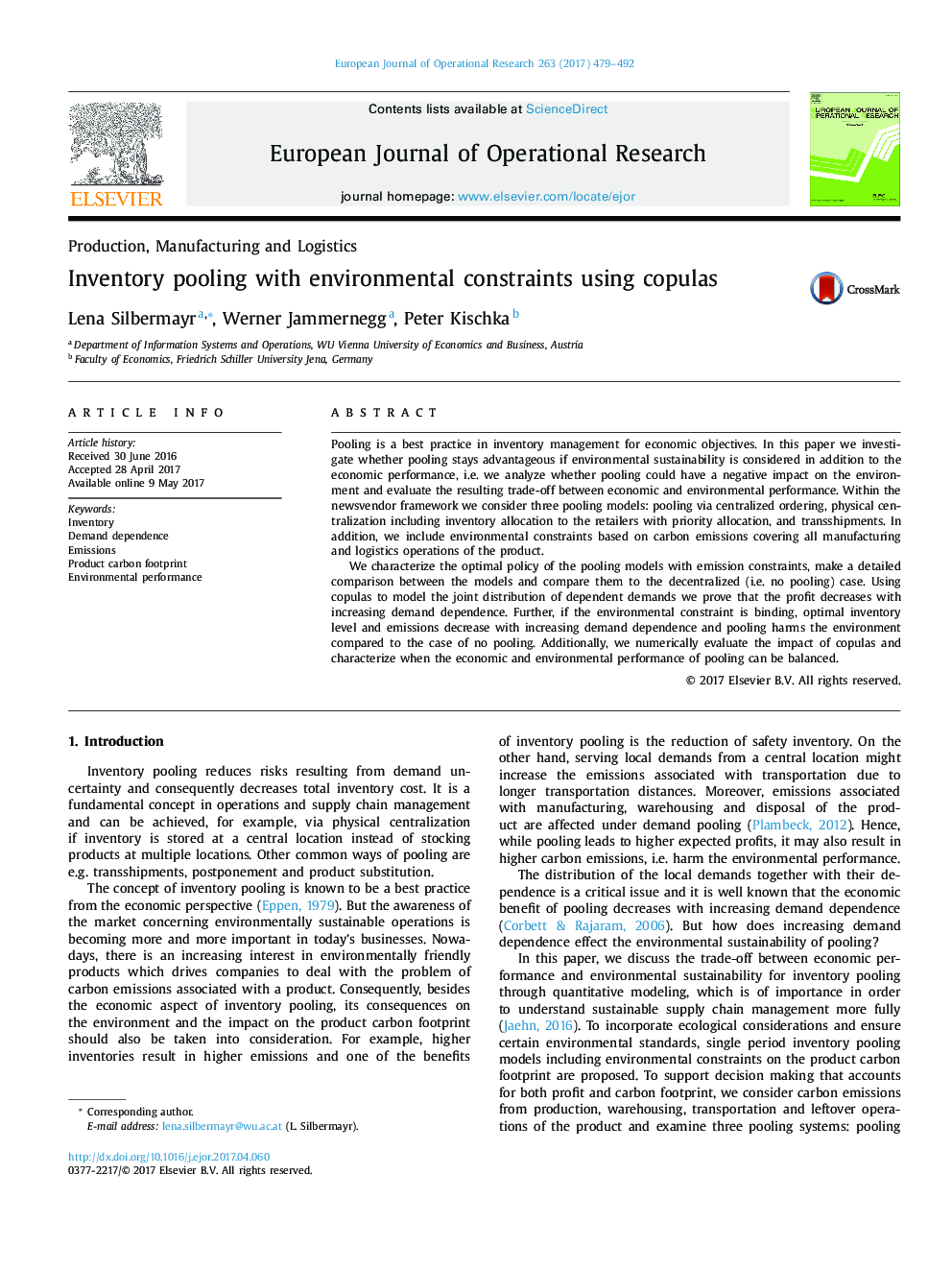| Article ID | Journal | Published Year | Pages | File Type |
|---|---|---|---|---|
| 4959381 | European Journal of Operational Research | 2017 | 14 Pages |
Abstract
Pooling is a best practice in inventory management for economic objectives. In this paper we investigate whether pooling stays advantageous if environmental sustainability is considered in addition to the economic performance, i.e. we analyze whether pooling could have a negative impact on the environment and evaluate the resulting trade-off between economic and environmental performance. Within the newsvendor framework we consider three pooling models: pooling via centralized ordering, physical centralization including inventory allocation to the retailers with priority allocation, and transshipments. In addition, we include environmental constraints based on carbon emissions covering all manufacturing and logistics operations of the product.We characterize the optimal policy of the pooling models with emission constraints, make a detailed comparison between the models and compare them to the decentralized (i.e. no pooling) case. Using copulas to model the joint distribution of dependent demands we prove that the profit decreases with increasing demand dependence. Further, if the environmental constraint is binding, optimal inventory level and emissions decrease with increasing demand dependence and pooling harms the environment compared to the case of no pooling. Additionally, we numerically evaluate the impact of copulas and characterize when the economic and environmental performance of pooling can be balanced.
Related Topics
Physical Sciences and Engineering
Computer Science
Computer Science (General)
Authors
Lena Silbermayr, Werner Jammernegg, Peter Kischka,
